To Kill a Mockingbird is a 1960 novel by American author Harper Lee.
To Kill a Mockingbird may also refer to:
- To Kill a Mockingbird (film), a 1962 adaptation of the novel
- To Kill a Mockingbird (2018 play), a 2018 Broadway play
To Kill a Mockingbird is a 1960 novel by American author Harper Lee.
To Kill a Mockingbird may also refer to:
Calpurnia may refer to:

To Kill a Mockingbird is a novel by the American author Harper Lee. It was published in July 1960 and became instantly successful. In the United States, it is widely read in high schools and middle schools. To Kill a Mockingbird has become a classic of modern American literature; a year after its release, it won the Pulitzer Prize. The plot and characters are loosely based on Lee's observations of her family, her neighbors and an event that occurred near her hometown of Monroeville, Alabama, in 1936, when she was ten.

Monroeville is the county seat of Monroe County, Alabama, United States. At the 2020 census its population was 5,951.

Nelle Harper Lee was an American novelist whose 1960 novel To Kill a Mockingbird won the 1961 Pulitzer Prize and became a classic of modern American literature. She assisted her close friend Truman Capote in his research for the book In Cold Blood (1966). Her second and final novel, Go Set a Watchman, was an earlier draft of Mockingbird, set at a later date, that was published in July 2015 as a sequel.

The northern mockingbird is a mockingbird commonly found in North America, of the family Mimidae. The species is also found in some parts of the Caribbean, as well as on the Hawaiian Islands. It is typically a permanent resident across much of its range, but northern mockingbirds may move farther south during inclement weather or prior to the onset of winter. The northern mockingbird has gray to brown upper feathers and a paler belly. Its tail and wings have white patches which are visible in flight.
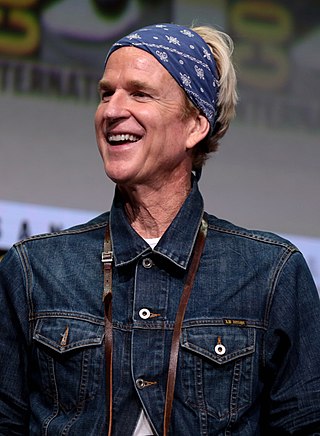
Matthew Avery Modine is an American actor and filmmaker. He shared the Venice Film Festival‘s Volpi Cup for Best Actor as part of the ensemble cast of Robert Altman film Streamers (1983). He went on to play lead roles in several high-profile films throughout the 1980’s, including include Birdy (1984), Vision Quest (1985), and Married to the Mob (1988). He gained further prominence for playing U.S. Marine J.T. "Joker" Davis in Stanley Kubrick's Full Metal Jacket (1987).

The legal thriller genre is a type of crime fiction genre that focuses on the proceedings of the investigation, with particular reference to the impacts on courtroom proceedings and the lives of characters.
Albert Horton Foote Jr. was an American playwright and screenwriter. He received Academy Awards for his screenplays for the 1962 film To Kill a Mockingbird, which was adapted from the 1960 novel of the same name by Harper Lee, and his original screenplay for the film Tender Mercies (1983). He was also known for his notable live television dramas produced during the Golden Age of Television.
A mockingbird is a bird known for its mimicking habits.
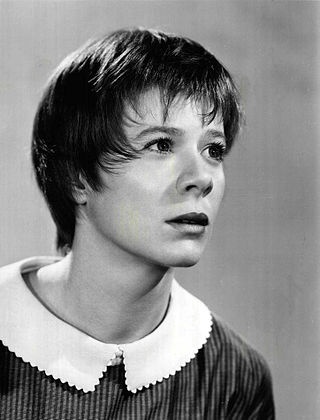
Collin Randall Wilcox was an American film, stage and television actress. Over her career, she was also credited as Collin Wilcox-Horne or Collin Wilcox-Paxton. Wilcox may be best known for her role in To Kill a Mockingbird (1962), in which she played Mayella Violet Ewell, whose father falsely claimed she had been raped by a black man, which sparks the trial at the center of the film.
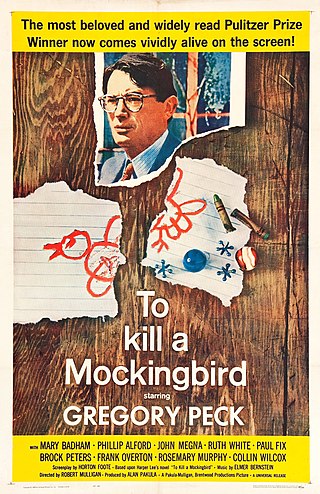
To Kill a Mockingbird is a 1962 American coming-of-age legal drama crime film directed by Robert Mulligan starring Gregory Peck and Mary Badham, with Phillip Alford, John Megna, Frank Overton, James Anderson, and Brock Peters in supporting roles. It marked the film debut of Robert Duvall, William Windom, and Alice Ghostley. Adapted by Horton Foote, from Harper Lee's 1960 Pulitzer Prize–winning novel, it follows a lawyer (Peck) in Depression-era Alabama defending a black man (Peters) charged with rape while educating his children against prejudice.

Scott Rudin is an American film, television and theatre producer. His films include the Academy Award-winning Best Picture No Country for Old Men, as well as Uncut Gems, Lady Bird, Fences, The Girl with the Dragon Tattoo, The Social Network, South Park: Bigger, Longer & Uncut, School of Rock, Zoolander, The Truman Show, Clueless, The Addams Family, and eight Wes Anderson films. On Broadway, he has won 17 Tony Awards for shows such as The Book of Mormon, Hello, Dolly!, The Humans, A View from the Bridge, Fences and Passion.
Since the publication ofTo Kill a Mockingbird in 1960, there have been many references and allusions to it in popular culture. The book has been internationally popular for more than a half century, selling more than 30 million copies in 40 languages. It currently (2013) sells 750,000 copies a year and is widely read in schools in America and abroad. Harper Lee and her publisher did not expect To Kill a Mockingbird to be such a huge success. Since it was first published in 1960, it has sold close to one million copies a year and has been the second-best-selling backlist title in the United States. Whether they like the book or not, readers can remember when and where they were the first time they opened the book. Because of this, Mockingbird has become a pillar for students around the country and symbol of justice and the reminiscence of childhood. To Kill a Mockingbird is not solely about the cultural legal practices of Atticus Finch, but about the fatherly virtues he held towards his children and the way Scout viewed him as a father.
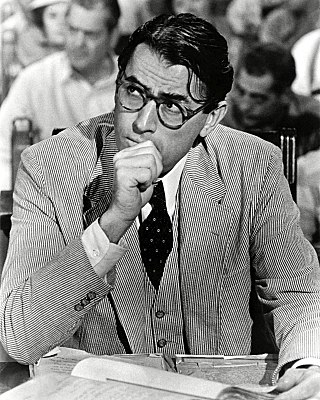
Atticus Finch is a fictional character and the protagonist of Harper Lee's Pulitzer Prize–winning novel of 1960, To Kill a Mockingbird. A preliminary version of the character also appears in the novel Go Set a Watchman, written in the mid-1950s but not published until 2015. Atticus is a lawyer and resident of the fictional Maycomb County, Alabama, and the father of Jeremy "Jem" Finch and Jean Louise "Scout" Finch. He represents the African-American man Tom Robinson in his trial where he is charged with rape of Mayella Ewell. Through his unwavering dedication to upholding justice and fighting for what is right, Atticus becomes an iconic symbol of moral integrity and justice. Lee based the character on her own father, Amasa Coleman Lee, an Alabama lawyer, who, like Atticus, represented black defendants in a highly publicized criminal trial. Book magazine's list of The 100 Best Characters in Fiction Since 1900 names Finch as the seventh-best fictional character of 20th-century literature. In 2003, the American Film Institute voted Atticus Finch, as portrayed in an Academy Award–winning performance by Gregory Peck in the 1962 film adaptation, as the greatest hero of all American cinema. In the 2018 Broadway stage play adapted by Aaron Sorkin, Finch has been portrayed by various actors including Jeff Daniels, Ed Harris, Greg Kinnear, Rhys Ifans, and Richard Thomas.
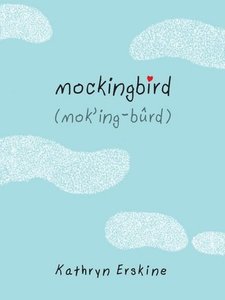
Mockingbird is a young adult novel by American author Kathryn Erskine about a girl with Asperger's syndrome coping with the loss of her brother. It won the 2010 U.S. National Book Award for Young People's Literature. In 2012, it was awarded the Dolly Gray Children's Literature Award.
"Hey, Boo" may refer to:

The Old Monroe County Courthouse is a historic courthouse building in Monroeville, Alabama that served as the Monroe County courthouse from 1903 to 1963.

Go Set a Watchman is a novel by Harper Lee that was published in 2015 by HarperCollins (US) and Heinemann (UK). Written before her only other published novel, To Kill a Mockingbird (1960), Go Set a Watchman was initially promoted as a sequel by its publishers. It is now accepted that it was a first draft of To Kill a Mockingbird, with many passages in that book being used again.

To Kill a Mockingbird is a 2018 play based on the 1960 novel of the same name by Harper Lee, adapted for the stage by Aaron Sorkin. It opened on Broadway at the Shubert Theatre on December 13, 2018. The play opened in London's West End at the Gielgud Theatre in March 2022. The show follows the story of Atticus Finch, a lawyer in 1930s Alabama, as he defends Tom Robinson, a black man falsely accused of rape. Varying from the book, the play has Atticus as the protagonist, not his daughter Scout, allowing his character to change throughout the show. During development the show was involved in two legal disputes, the first with the Lee estate over the faithfulness of the play to the original book, and the second was due to exclusivity to the rights with productions using an earlier script by Christopher Sergel. During opening week, the production garnered more than $1.5 million in box office sales and reviews by publications such as the New York Times, LA Times and AMNY were positive but not without criticism.